Top AI Voice Generators and Text-to-Speech Tools in 2025
December 6, 2024

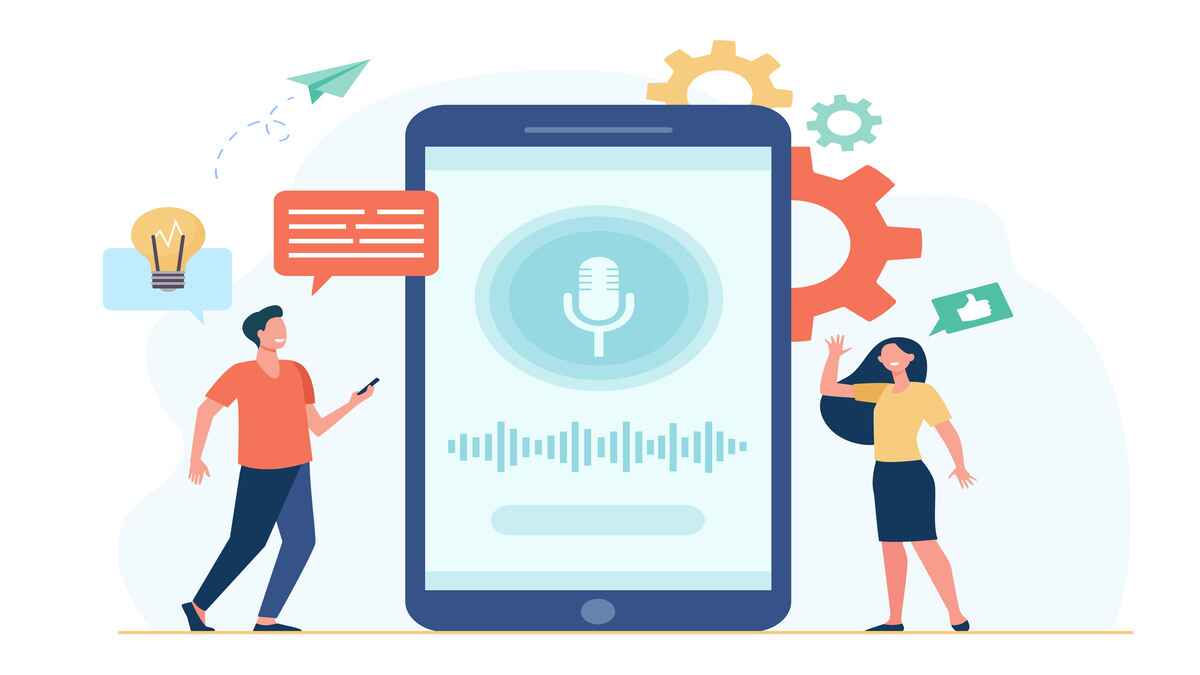
The demand for high-quality audio content is soaring in today’s digital age. The need for natural-sounding voices has never been greater, from podcasts and audiobooks to video dubbing and virtual assistants. Fortunately, AI voice generators and text-to-speech tools have emerged as powerful solutions to this growing demand. These innovative technologies leverage the power of artificial intelligence to convert written text into realistic speech, enabling content creators to produce engaging audio content efficiently and cost-effectively. By effectively utilizing voice cloning tools, content creators can further enhance the authenticity and impact of their audio content by replicating specific voices, adding a unique and personal touch to their projects.
At the core of AI voice generators lies a complex interplay of machine learning and artificial intelligence. These tools are trained on vast datasets of human speech, enabling them to learn patterns and nuances essential for generating realistic and expressive voices.
AI voice generators can make content more accessible to people with visual impairments or reading difficulties, allowing them to consume information more easily.
By automating the voiceover process, these tools can significantly boost productivity, saving time and effort for content creators.
AI voice generators offer various customization options, enabling creators to experiment with different voices, accents, and styles to bring their content to life.
Traditional voiceover production can be expensive, especially for large-scale projects. AI voice generators provide a cost-effective solution, eliminating the need for human voice actors.
These tools are accessible via the Internet, offering flexibility and ease of use. Popular cloud-based options include Amazon Polly, Google Text-to-Speech, and more.
Desktop software provides offline access to AI voice generation capabilities. Tools like NaturalReader and Balabolka are popular choices for desktop users.
Mobile apps offer on-the-go text-to-speech functionality, making it convenient for users to create audio content on their smartphones and tablets.
When selecting an AI voice generator, consider the following factors:
Identify your specific requirements and use cases.
Evaluate pricing models and choose a tool that fits your budget.
Prioritize tools that offer high-quality, natural-sounding voices.
Look for tools to customize voice style, speed, and accent.
Opt for user-friendly tools with intuitive interfaces.

AI-powered text-to-speech tool with realistic voiceovers for videos, podcasts, and presentations.
Free plan; premium starts at $19/month.

Voice generator with custom voice cloning and real-time AI-generated speech.
Custom pricing based on usage.

AI video creation tool with realistic voiceovers and multilingual support.
Starting at $30/month.

AI-powered voice generator for gaming, ads, and storytelling with ultra-realistic voices.
A free plan is available; the premium starts at $17.49/month.

AI voice generator for gaming, animations, and storytelling with professional-quality voices.
Free trial; plans start at $24/month.

AI-driven text-to-speech tool designed for reading and voice generation.
Free plan; premium starts at $11.58/month.
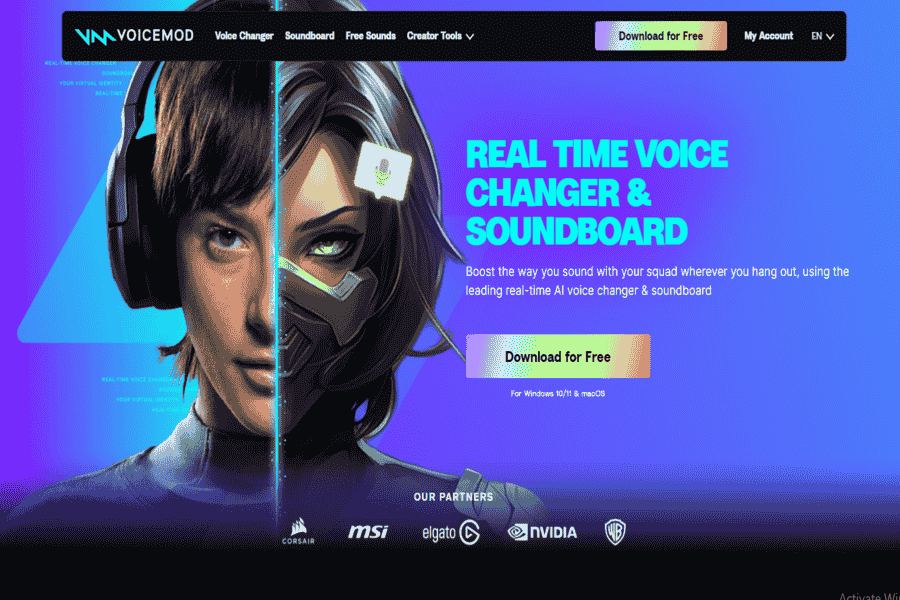
A real-time voice changer and text-to-speech tool for gaming, streaming, and content creation.
Free plan; premium starts at $12/year.

AI-powered text-to-speech platform offering high-quality voiceovers in multiple languages.
Free trial; premium starts at $19/month.
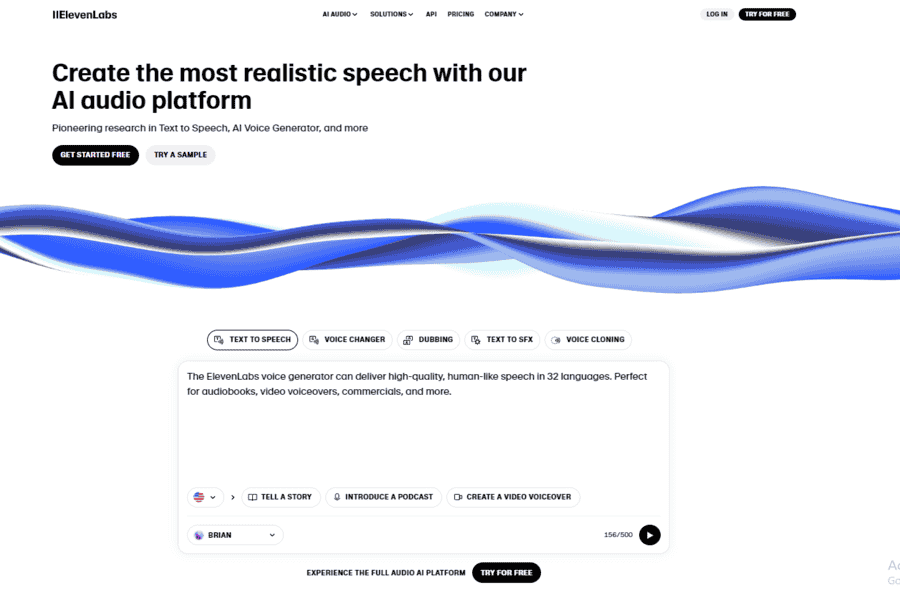
AI voice synthesis platform with ultra-realistic and expressive speech generation capabilities.
Free plan; premium starts at $5/month.
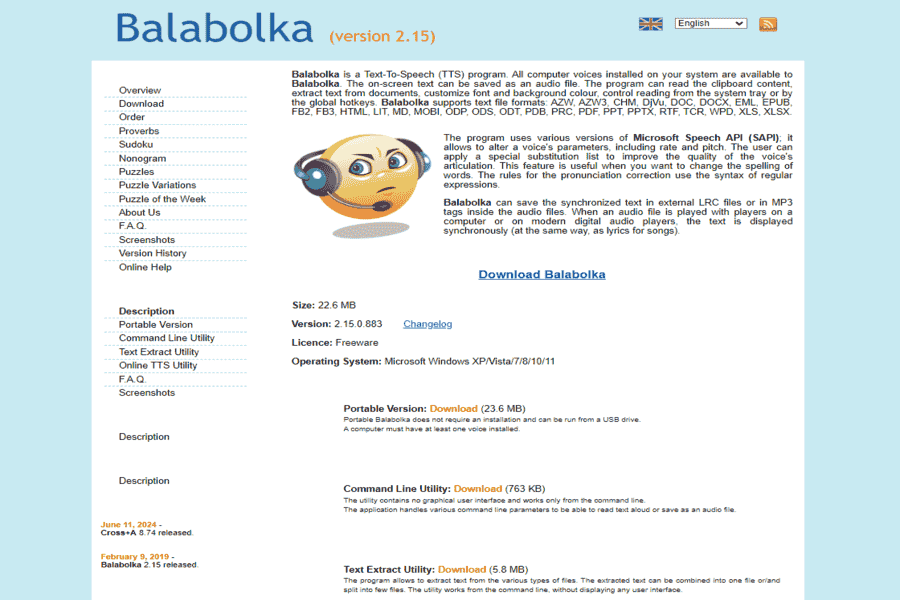
Free text-to-speech software compatible with various file formats and voice engines.
Free.

AI text-to-speech and speech recognition software offer realistic voices for businesses and developers.
Free trial; custom pricing for enterprise solutions.
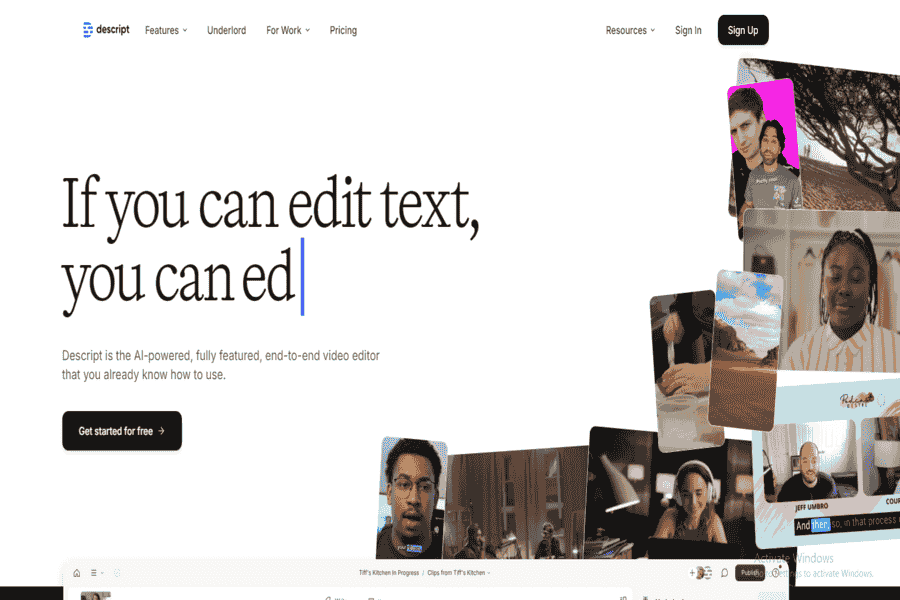
AI-powered audio and video editing software with text-to-speech features and overdubbing.
Free plan; premium starts at $12/month.

AI-driven real-time voice changer and custom voice generator for gaming, streaming, and content creation.
Free plan; premium starts at $14.99/month.
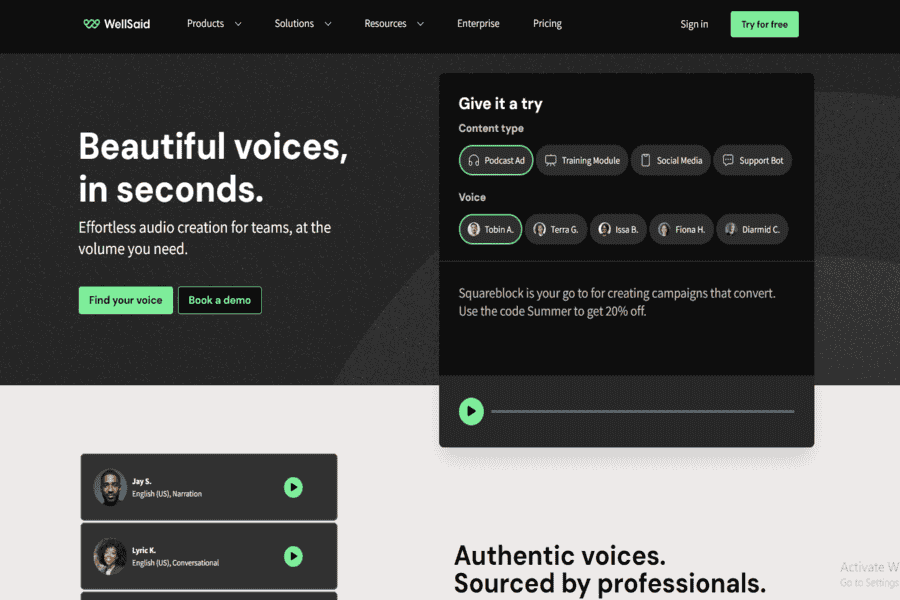
Text-to-speech tool offering natural-sounding voices for marketing, e-learning, and video production.
Starting at $49/month.

High-quality text-to-speech software for personal, business, and developer use.
Starting at $35/license.
The rapid advancement of AI voice generation technology brings forth a host of ethical considerations that must be addressed to ensure responsible and beneficial use.
AI voice generators often require access to vast amounts of personal data, including voice recordings, to train their models. Implementing robust data privacy measures to protect user information from unauthorized access and misuse is crucial.
Voice data can be considered a form of biometric, highly sensitive data. Strict regulations and guidelines are necessary to safeguard this information and prevent its unauthorized use for identification or surveillance purposes.
AI voice generators can create highly realistic deepfakes, where a person’s voice is manipulated to say things they never said. This technology can be misused to spread misinformation, defamation, or even impersonate individuals for fraud.
AI can clone a person’s voice, enabling malicious actors to impersonate them in various contexts, such as phishing attacks or unauthorized financial transactions.
AI developers and deployers should be transparent about their models’ limitations and potential biases. They should also be accountable for the ethical implications of their technology.
AI models should be trained on diverse datasets to avoid biases that could perpetuate discrimination or unfairness.
Human oversight is essential to ensure that AI systems are used responsibly and ethically.
Collaboration between researchers, policymakers, and industry leaders is crucial to developing ethical guidelines and standards for AI voice generation.
The rapid advancements in AI technology are poised to revolutionize the field of voice generation. As we look ahead, several exciting trends are emerging:
AI models will become increasingly adept at capturing and expressing a wide range of emotions, making synthetic voices even more human-like.
Users can customize voices to match specific personalities, accents, and speaking styles, creating unique audio experiences.
AI voice generators can process and generate speech in real time, enabling seamless interaction with virtual assistants and other AI-powered systems.
Dynamic voice generation will enhance immersive storytelling experiences, allowing for personalized and interactive narratives.
AI voice generators will support a wider range of languages and dialects, facilitating communication across cultures and borders.
These tools will be able to capture the subtle nuances of different cultures, including speech patterns, accents, and regional idioms.
With advanced voice cloning techniques, it will be possible to create highly accurate digital replicas of real voices, enabling applications like voice dubbing, audiobook narration, and personalized voice assistants.
As AI voice generation becomes more sophisticated, it is crucial to maintain transparency and accountability in its development and deployment.
Clear regulations and guidelines will be necessary to address potential ethical concerns, such as deepfakes and misuse of voice technology.
AI voice generators and text-to-speech tools have revolutionized how we create and consume audio content. These technologies have empowered content creators to produce high-quality audio content at scale by automating the voiceover process. We can expect even more sophisticated and realistic voice generation capabilities as AI advances. However, it is crucial to address the ethical implications of this technology, such as privacy concerns and the potential for misuse. By striking a balance between innovation and responsibility, we can harness the power of AI voice generation to create a future where technology enhances human experiences and drives positive societal impact.
